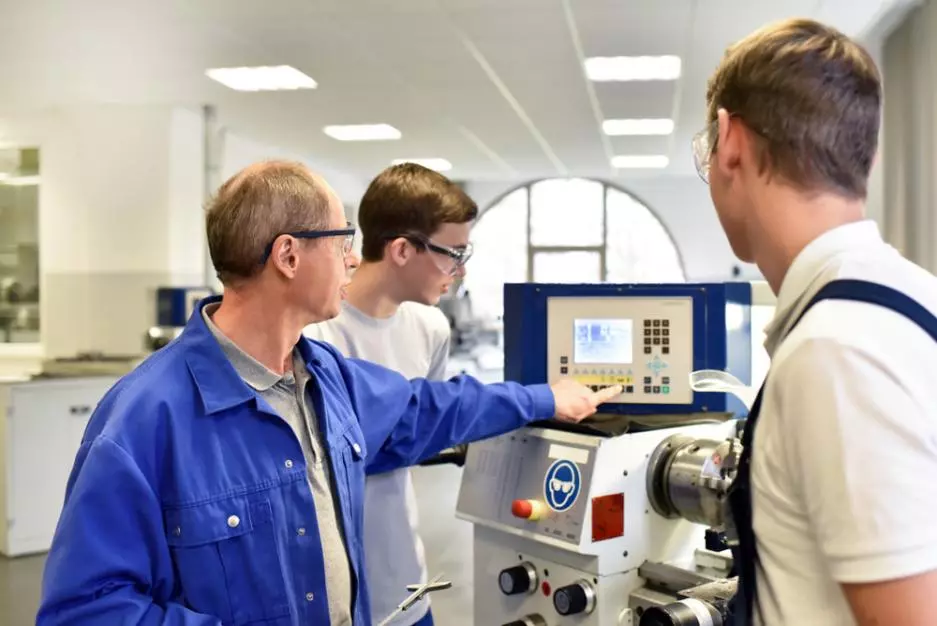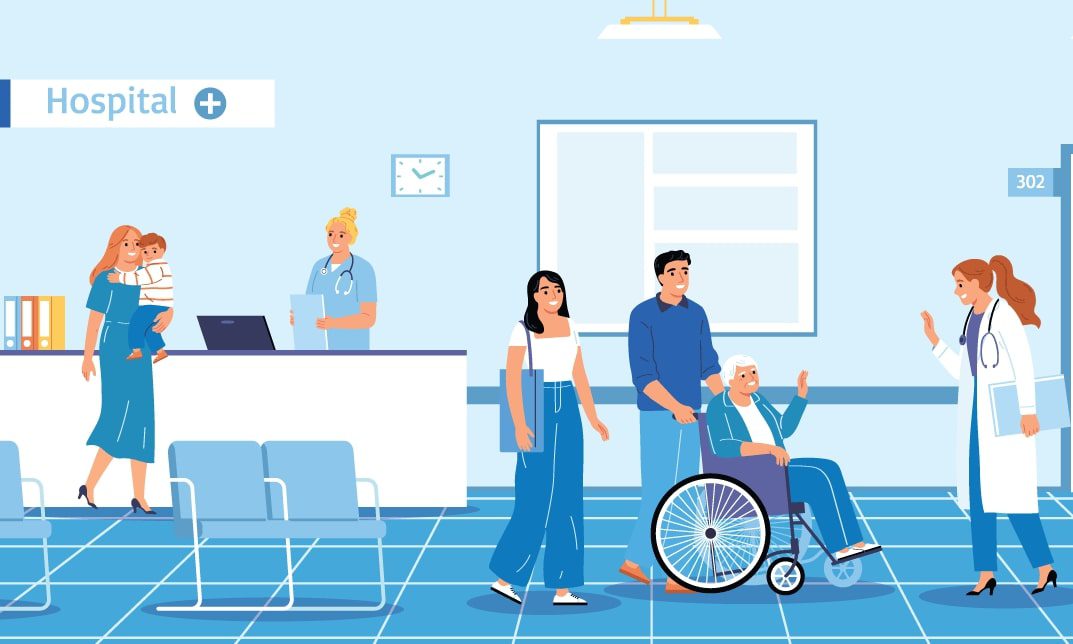No products in the basket.
Introduction
Welcome to our blog post on Increasing Your Influence With Quality Training in Youth Work. As a youth worker, you play an important role in influencing the lives of young people and assisting them in reaching their full potential. In this blog, we will discuss the significance of great training in youth work and how it may help you make the most of your job.
Who Are The Youth Work?
Youth are people aged 12 to 25 who are in a critical time of their lives, establishing their identity, forming connections, and molding their future. This period is distinguished by many physical and emotional changes, which can make it a difficult time for young people. They are society’s future leaders and decision-makers, and their experiences during this period will define their future lives.
Young people today are growing up in a fast-changing world full of new opportunities and difficulties.
They are more connected than ever before, but they are also vulnerable to new threats such as cyberbullying, substance misuse, and mental health problems. Youth workers play an important role in assisting young people in navigating these hurdles and reaching their full potential by offering advice, support, and resources.
The kids are the future of civilization, and it is critical that they receive the support, guidance, and training they need to become responsible and productive members of society. We help guarantee that the next generation has the skills and knowledge they need to achieve and flourish in the world by offering high-quality training and support to youth workers.
The Importance of Quality Training for Youth Workers
Youth workers must get quality training to support the young people they serve. It gives youth the tools, information, and skills they need. to fulfil their greatest potential and overcome whatever obstacles they may face. Organisations may help guarantee that young people receive the support they need to survive and flourish. by offering quality training to youth workers.
Quality training prepares adolescent workers to cope with a variety of concerns. Such as substance misuse, mental health, bullying, and violence. It teaches students the complexity of dealing with young people. Also equips them with the tools they need. Moreover, support and lead them through tough situations. It also assists youth workers with staying current on best practices, rules, and approaches. Ensuring that they are equipped. to give the greatest possible support to young people.
Investing in effective young worker training benefits the company as a whole. It contributes to the development of a strong and skilled workforce, which leads to improved results for young people. It also encourages professional growth and job satisfaction among young people, which can result in reduced turnover rates and more dedication to their jobs.
Understanding the Needs of Youth in the Modern World
Young people face new and unique obstacles in today’s environment. Which can have an influence on their mental health and well-being. Understanding the requirements of today’s youth is critical. To ensure that they have the skills and help they need to flourish.
One of the most significant difficulties confronting today’s adolescents is the urge to be connected and involved with technology. Social media and the internet have become indispensable parts of modern life. But they have also introduced new issues. Such as cyberbullying, online harassment, and an onslaught of information and stimulation.
Young people are also under greater academic pressure since they are expected to acquire higher grades and levels of schooling than earlier generations. This can result in increased stress and worry. Especially as they attempt to juggle schoolwork, extracurricular activities, and personal relationships.
Furthermore, kids are frequently exposed to a broader spectrum of traumatic events through the media. Such as natural disasters, war, and terrorism. Which can have long-term consequences for their mental health and well-being.
It is critical that we understand the requirements of today’s youth to assist them in acquiring the skills and resilience required to achieve and thrive. This involves educating people and offering resources on healthy technology.
Strategies for Creating Impactful and Engaging Training Sessions
Training programs that are both powerful and entertaining need careful design and execution. Here are some techniques for creating excellent training sessions:
Understand your target audience:
Understanding your participants’ requirements and interests is crucial for designing interesting and relevant training courses. Also, ensure you understand what your participants want from the session and adjust your material to match their goals.
Active learning strategies like hands-on exercises and group discussions can help participants stay engaged and keep material more effectively. When workable, include these approaches in your training sessions.
Visual tools like presentations, movies, and photographs may help make your training sessions more interesting and memorable. To keep your guests attentive and interested, use visual aids that are clear, simple, and easy to grasp.
Use comedy and narrative:
Using humour and storytelling to engage your audience and keep them engaged in your material may be successful. Consider telling anecdotes and jokes to explain crucial themes and make your training sessions more enjoyable and memorable.
Encourage engagement and feedback:
Allowing your guests to participate and provide comments will help make your training sessions more interesting and dynamic. Pose questions, ask for comments, and allow attendees to share their experiences and views.
Following these tactics will allow you to develop training sessions. That is both powerful and entertaining. Allowing participants to obtain the skills and information they need to succeed.
The Role of Technology in Enhancing Youth Work Training

Technology has become important as a tool for improving youth employment training and development with the increased use of digital platforms and online resources. Technology has the potential to transform the way youth workers are taught. Also, to equip them with the skills they need to effectively serve young people.
Access to online learning resources and e-courses is one of the most important ways. That technology can improve youth work training. This can serve to broaden the reach of training and provide young workers with access to the knowledge they require, from any location and at any time.
Furthermore, technology may enable youth workers to interact with their colleagues and mentors in virtual communities. Where they can share best practices, ask questions, and offer support to one another. This can aid in forming a supporting network of experts working toward shared aims and objectives.
Furthermore, technology may facilitate engaging and immersive training experiences. Virtual reality simulations and role-playing exercises, for example, can assist students in developing empathy, communication, and problem-solving abilities in a safe and controlled setting.
Finally, technology can improve youth work training. By enabling new and inventive methods to learn, interact, and build the skills required to serve young people. As technology advances, youth workers must seize the possibilities. It offers and stays open to new and inventive methods to improve their training and development.
Developing Measurable Outcomes for Youth Work Training
- Define aims: The first step in developing quantifiable results for youth work training is to define clear and precise objectives for the training program. This will assist in ensuring that the training is targeted and relevant. Also, the outcomes are easily monitored and evaluated.
- Determine the desired outcomes: Determine the training program’s desired outcomes, such as improved communication skills, increased confidence, and enhanced problem-solving ability. These outcomes should be explicit, quantifiable, and pertinent to the needs and aims of the young workers receiving training.
- Use assessments and evaluations to determine the efficacy of the training program. Also, the achievement of desired outcomes. This can involve assessments before and after training, as well as continuing evaluations to measure progress and highlight areas for improvement.
- Set attainable goals and milestones for the training program to help measure progress and analyse the impact of the training. Setting targets for the number of young workers who complete the training, the number of good outcomes achieved, and the overall influence on the quality of youth work may all be part of this.
- Collect data: Collect feedback from youth workers and other stakeholders to better understand their experiences with the training program. This input may use to identify areas of strength and weakness as well as to drive future training programs to improve the quality and effectiveness of youth work.
Social Worker
A social worker is a professional who assists people, families, and communities deal with social and personal issues. They are employed in a wide range of contexts, including schools, hospitals, government institutions, and non-profit organisations. Social workers offer counselling, support, and advocacy to those who are dealing with mental health concerns, poverty, addiction, or other life obstacles.
Also, to provide direct services, social workers are important in pushing for legislative reforms that benefit underprivileged populations. They aim to raise awareness of social issues, locate resources and support networks, and assist individuals in obtaining the needed services.
To become a social worker, you must have a strong commitment to social justice and a strong desire to serve others. Social workers typically need to have academic knowledge, gain supervised fieldwork experience, and obtain a state license to practice in their area of operation. Despite the job’s obstacles and complexities, social workers find it immensely satisfying because they help individuals and communities achieve positive outcomes.
Summary
Quality training equips youth workers with the necessary skills to deal with various issues, including substance abuse, mental health, bullying, and violence. It also helps youth workers understand the complexities of working with young people. Also, to provide them with the skills to support and guide them through difficult times. Quality training is important for youth workers. It is essential to provide young people with the support they need to reach their full potential.
By investing in quality training for youth workers, organisations can help ensure they are equipped. To provide the best possible support to young people, leading to better outcomes for both the youth and the organisation.
FAQs
What are the Best practices for delivering quality training to a diverse youth group?
- Identify and resolve any hurdles: Understanding the specific experiences and problems that various groups of children confront is critical. About to drop any barriers that may prevent them from engaging in training programs.
- Incorporating sensitive teaching approaches. such as storytelling, interactive exercises, and group work. These may help make the training experience more engaging and meaningful to different kids.
- Incorporating sensitive teaching approaches. Such as storytelling, interactive exercises, and group work may help make the training experience more engaging and meaningful to different kids.
- Foster a sense of community: Creating a supportive and inclusive community. Among the varied groups of youngsters may assist in building trust and inspire active engagement in the training program. This may accomplish through team-building exercises, group discussions, and continuing support and feedback.
What are the impacts of Incorporating diversity, equity and inclusion in youth work training?
Improved cultural competence: By including diversity, equality, and inclusion into youth work training, professionals may gain a greater awareness of various youths’ experiences and viewpoints, as well as the skills and knowledge required to serve them.
Improved outreach and engagement: When diversity, equality, and inclusion are highlighted in youth training, professionals can reach out to and interact with a wide variety of adolescents, resulting in better results for young participants.
Increased trust and respect: Incorporating diversity, equality, and inclusion into youth work training may assist professionals and the varied adolescents they serve to create trust and respect, enhancing relationships and increasing the possibility that youth will engage fully in programs.
What is the role of continuing education and professional development for youth workers?
Youth work necessitates continuing education and professional growth. They are important in ensuring youth workers have the information, skills, and competencies needed to offer successful services to various young populations.
Keeping current practices in mind: Youth work is a dynamic area, with new research, theories, and best practices appearing on a regular basis. Professional development options allow young workers to be educated and up to speed on the newest advancements in their area.
Improving skills and knowledge: Opportunities for continuing education and professional development. Allow youth workers to increase their skills and knowledge. in the areas such as conflict resolution, trauma-informed care, diversity, equity, and inclusion.
What is the future of youth work training and the role of innovation?
Advances in technology and the rising demand for professionals to be trained to engage with varied and complicated young groups will affect the future of youth work training. Innovation, such as the use of virtual and online learning platforms, gamification, and other interactive and engaging teaching approaches, will be critical in ensuring that youth employment training stays current, effective, and accessible.
How to check the impact of youth work training and making improvements?
It is essential to check the effects of youth job training to ensure its efficacy and make adjustments.
This may accomplish through a variety of means. Including gathering input from young participants, conducting surveys. Also for tracking changes in adolescent behaviour and results.
A mix of quantitative and qualitative methodologies can offer a more thorough picture of the impact of youth work training and help influence future improvements.





